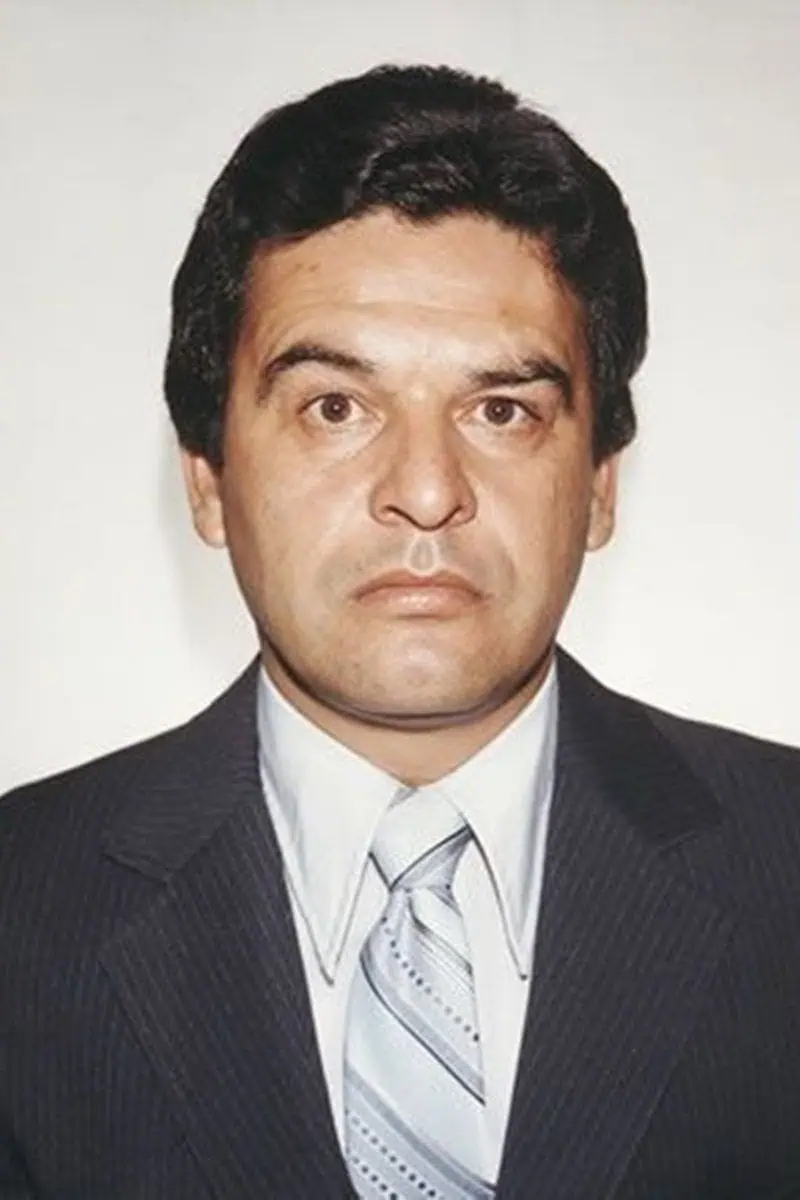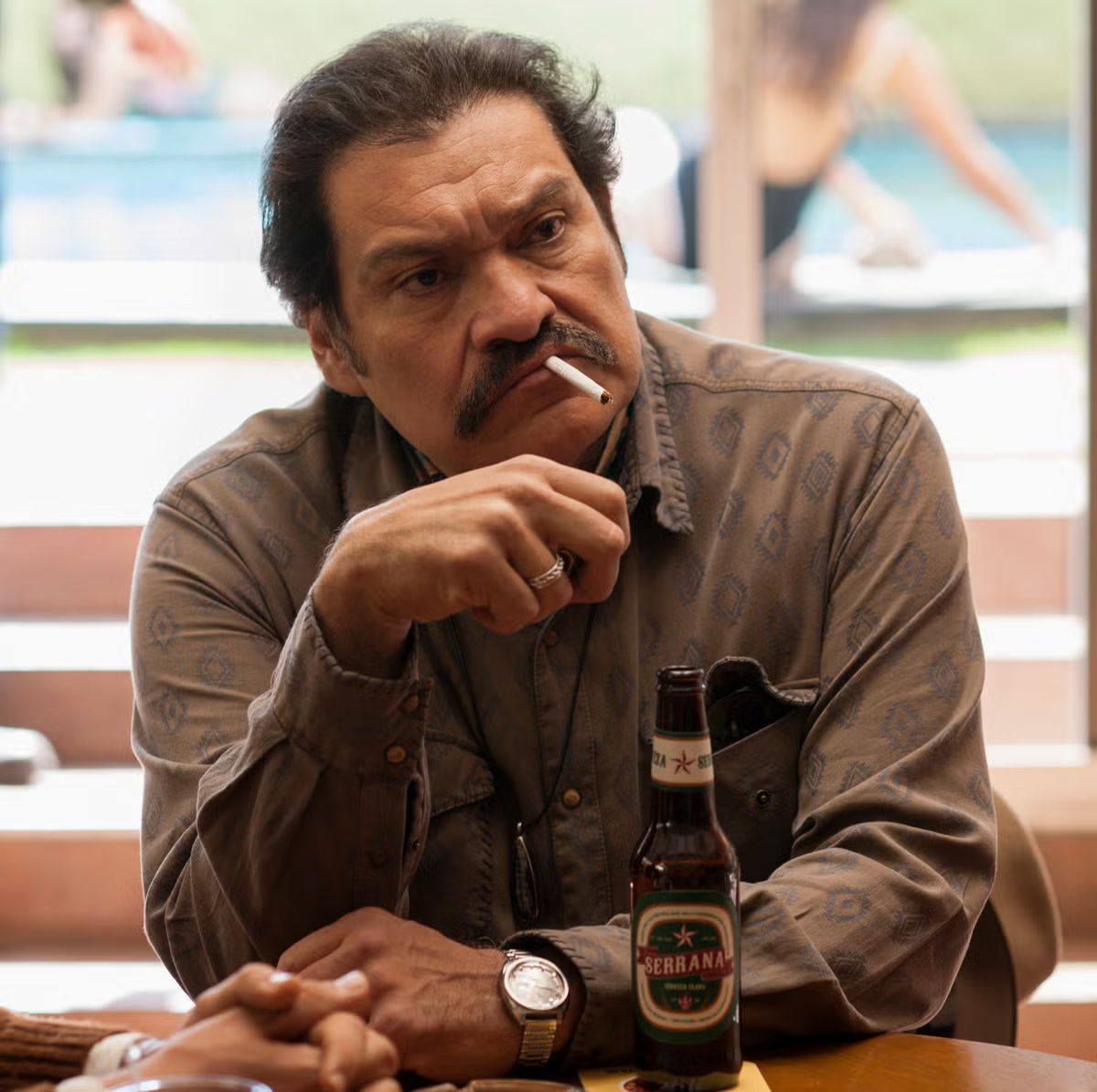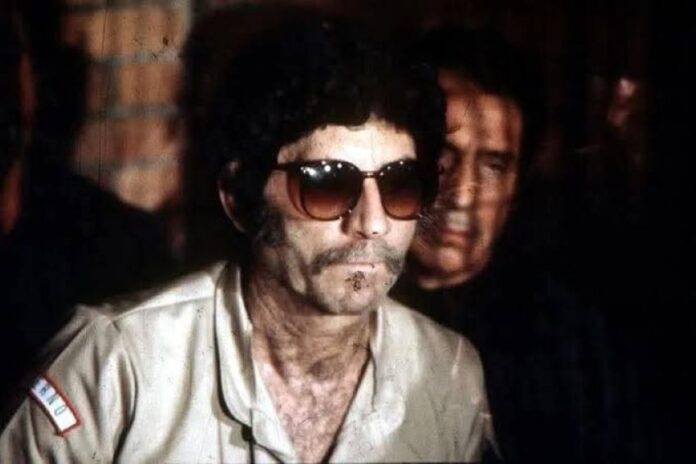Guadalajara Cartel founder Ernesto Fonseca Carrillo walked free on Saturday after completing a 40-year prison sentence in Mexico.
Fonseca, known as “Don Neto,” was convicted by the Mexican judicial system for his role in the February 1985 torture and murder of U.S. Drug Enforcement Administration (DEA) agent Enrique “Kiki” Camarena. The 94-year-old Fonseca had been held in home confinement since 2016.

Although the DEA still maintains a “Wanted” notice for Fonseca on its website, an unnamed Mexican official told Reforma newspaper that Don Neto served out his incarceration, has no pending charges, and is free to travel within Mexico.
Neither the U.S. Justice Department nor the DEA have issued a public statement regarding Fonseca’s release.
When asked about the case during her Thursday morning press conference, Mexico’s President Claudia Sheinbaum said she was unaware of any requests from U.S. authorities regarding Fonseca.
“I have no knowledge that the DEA or any U.S. agency might be inquiring about this,” she said. “I asked members of my Security Cabinet this morning and they told me he had completed his sentence.”
Who is Don Neto?
Fonseca comes from the same hometown as Joaquín “El Chapo” Guzmán, a drug kingpin serving a life sentence in a U.S. maximum security prison. Both were born in Badiraguato, Sinaloa.
Fonseca co-founded the Guadalajara Cartel, which dominated drug trafficking in Mexico in the 1980s and controlled the key smuggling routes into the United States.

The DEA indicted Fonseca in San Diego, California, on money-laundering charges in 1982, but he fled back to Mexico before he could be apprehended.
Agent Camarena was kidnapped, tortured and murdered in February 1985 three months after he spearheaded a raid on a Guadalajara Cartel marijuana plantation that the DEA called its largest drug seizure ever.
Don Neto was arrested for Camarena’s murder in Puerto Vallarta on April 7, 1985, but continued to contest both the criminal and civil charges for decades thereafter.
A Mexican appeals court ordered Fonseca freed in March 2017. The appeals court ruling granted him a form of early release usually given to prisoners who have completed most of their sentences.
However, Mexico’s Federal Attorney General’s Office annulled the appeals ruling and Fonseca remained under house arrest.
In 2022, Fonseca won an injunction against a civil court ruling that ordered him to pay 20.8 million pesos (US $1.2 million) in restitution to the family of the murdered DEA agent and relatives of his pilot, Alfredo Zavala, who was tortured and killed in the same incident.
In March 2025, the Camarena family filed civil charges against Fonseca in a U.S. federal court in San Diego.
Second Guadalajara Cartel co-founder meets a different fate
Another principal figure in the murder of the DEA agent was recently turned over to U.S. authorities. Rafael Caro Quintero was among 29 cartel figures transferred to the United States on Feb. 27 as part of a bilateral effort between the neighboring countries to battle drug trafficking.
As leader of the Guadalajara Cartel in the 1980s, Caro Quintero was one of the top suppliers of heroin, cocaine and marijuana to the U.S. The DEA asserts that Caro Quintero ordered the kidnapping of Camarena in retaliation for the Rancho Búfalo raid.
Like Fonseca, Caro Quintero was sometimes able to use Mexico’s judicial system in his favor. He was released from prison in 2013 after an appeals court overturned his murder conviction on jurisdictional grounds.
Mexico’s Supreme Court annulled that ruling three months later. A new warrant was issued for Caro Quintero’s arrest and the U.S. government offered a $5 million reward for information leading to his arrest. He was finally recaptured in July 2022.
With reports from Milenio, El Universal, CBS News, El País México and Infobae
